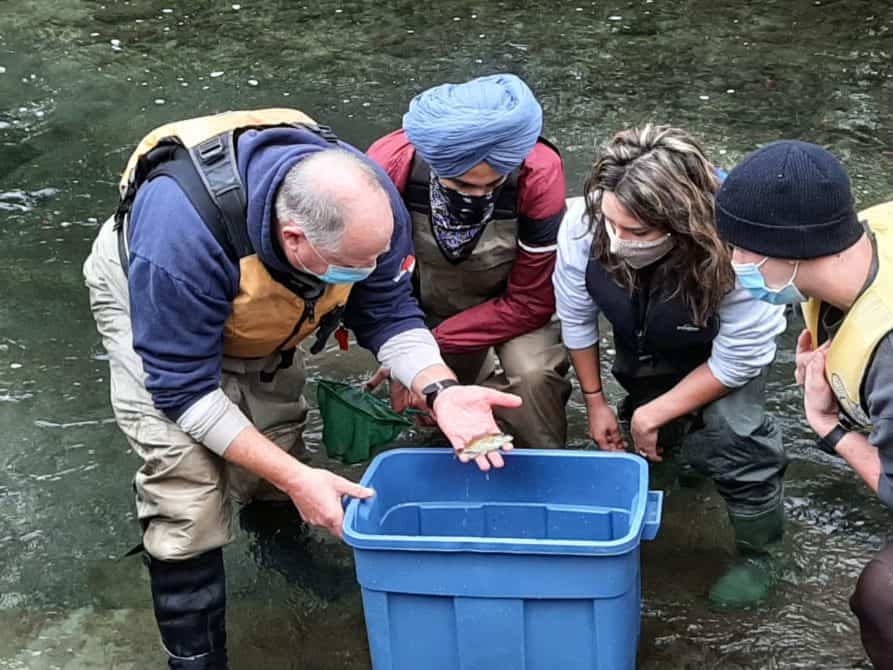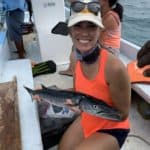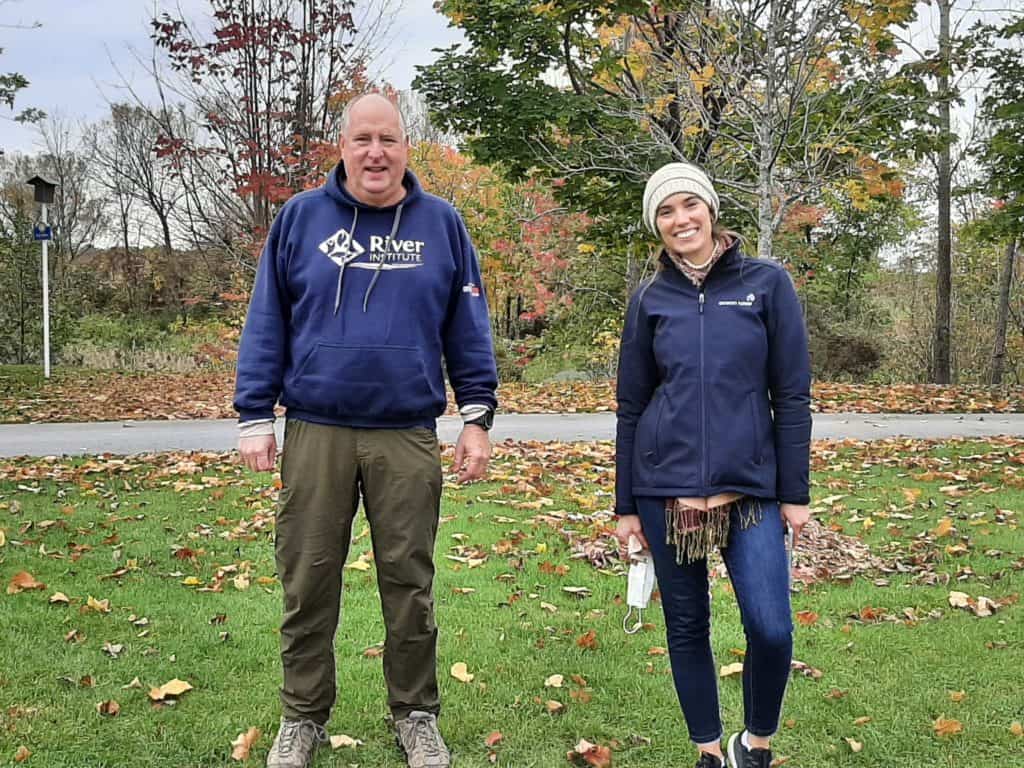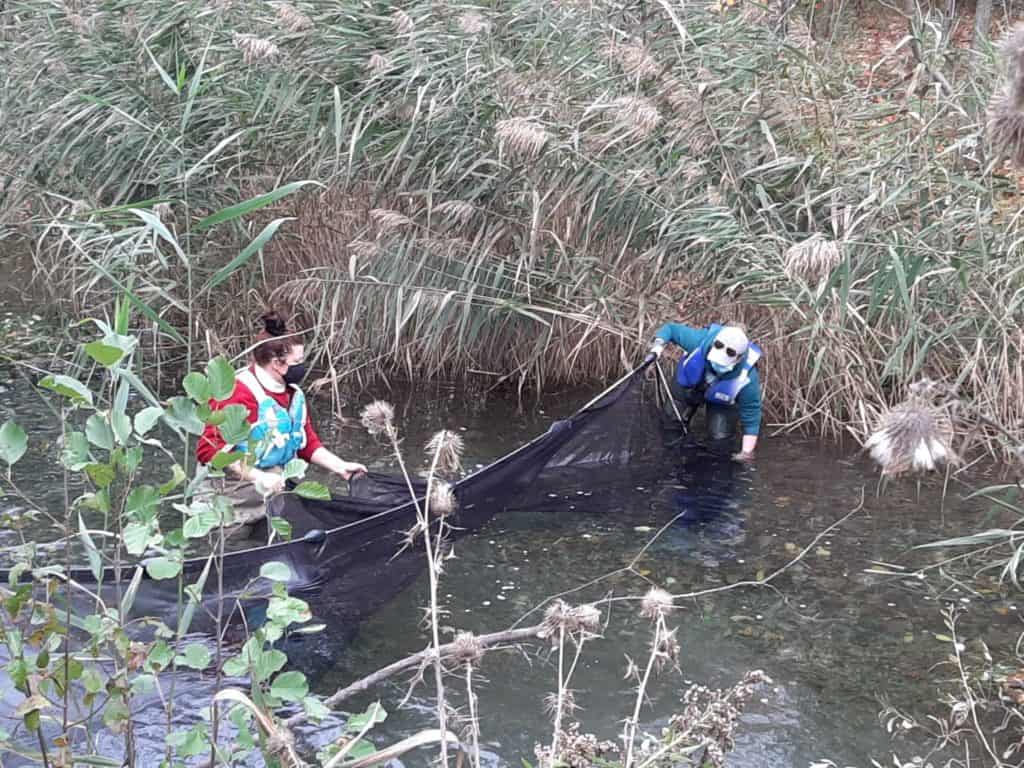Rotary Creek Chinook salmon spawning - community event

Project Details
Project dates
Location

Project Lead
A community event at the man-made Rotary Eco Gardens and Creek in Cornwall, Ontario aimed at protecting this important habitat.
Project Description
The Rotary Creek Chinook Salmon Community Event event was intended to coincide with Chinook salmon spawning in order for attendees to be given an overview of the spawning they were witnessing. Unfortunately, due to a warmer fall, the salmon had not yet arrived when the event took place. As such, in addition to discussing the salmon lifecycle and biology, Dr. Hickey presented on other species at risk found within the creek, such as Cutlip minnow, and also invited participants to put on waders and get into the creek to participate in seine netting. Species caught were then identified and attendees were taught how to identify common fish species found in the creek. St. Lawrence College students enrolled in the Environmental Technician program then had to complete a field exercise and submit an assignment following the event as part of their course. I had also reached out to Indigenous speaker, Abraham Francis, who was going to present on the Indigenous connection to land and water as well as on the significance of salmon to the Indigenous people, however, he was sick on the day of the event and unable to attend. I also contacted local restaurants and cafes to order food and coffee for the event.
As a part of my event, I was able to create an opportunity for students of the St. Lawrence College Environmental Technician program to participate in a hands-on learning experience in the field, seine netting and identifying fish in their natural environment. This helped them to acquire practical skills and introduced them to the Ocean Bridge program.
Interested members of the public were also able to attend the event, raising awareness and increasing understanding of their local environment. Many people do not know that Chinook salmon use this creek to spawn, and it is important to continue to educate the community in order for them to understand the importance of keeping our local shorelines clean, not littering, and participating in shoreline cleanups. It is also said that when people become engaged once, they will be more likely to participate in similar events in the future.
What was your biggest challenge?
An event date had to be set early on, and was decided on based on the average timeline of salmon spawning in past years. Unfortunately the salmon weren’t spawning at the time of the event since we had a warmer fall and they hadn’t arrived yet. I spoke with the event presenter and discussed other possible activities to fill the time of the event. I decided not to postpone the event as St. Lawrence College had already coordinated the field trip paperwork, and the event was a big success despite the salmon not being present.
Another challenge I experienced was when the Indigenous speaker who was scheduled to speak at the event fell ill on the day of the event. Once again, I worked together with Dr. Hickey, remained flexible, and the group had more time to participate in seine netting, which they loved!
What was your most valuable takeaway?
Throughout this experience, I learned that most people are eager to collaborate and assist you with your initiative, you only need to ask! This gave me the confidence to take initiative and lead more events in the future.
Adaptability was another big takeaway for me. Typically, when something doesn’t go as planned, I get very stressed. This experience showed me that even when something doesn’t go as planned, it can turn out just as successful, if not more. It is important to be observant and open to new opportunities.


